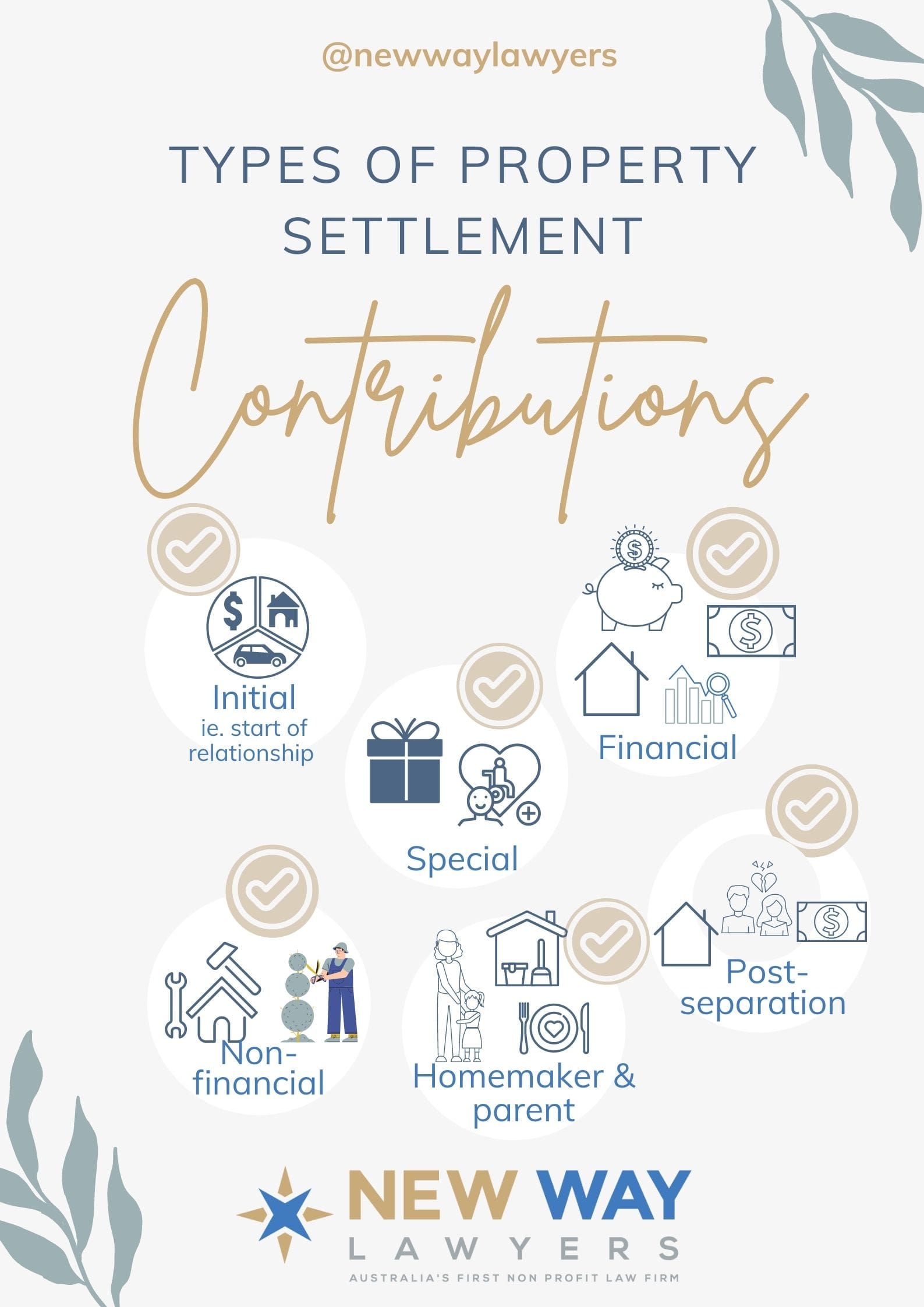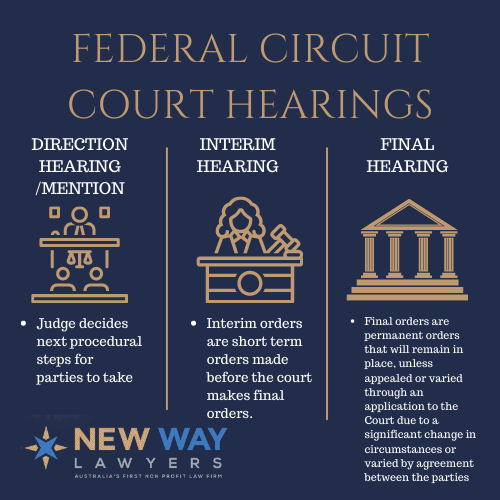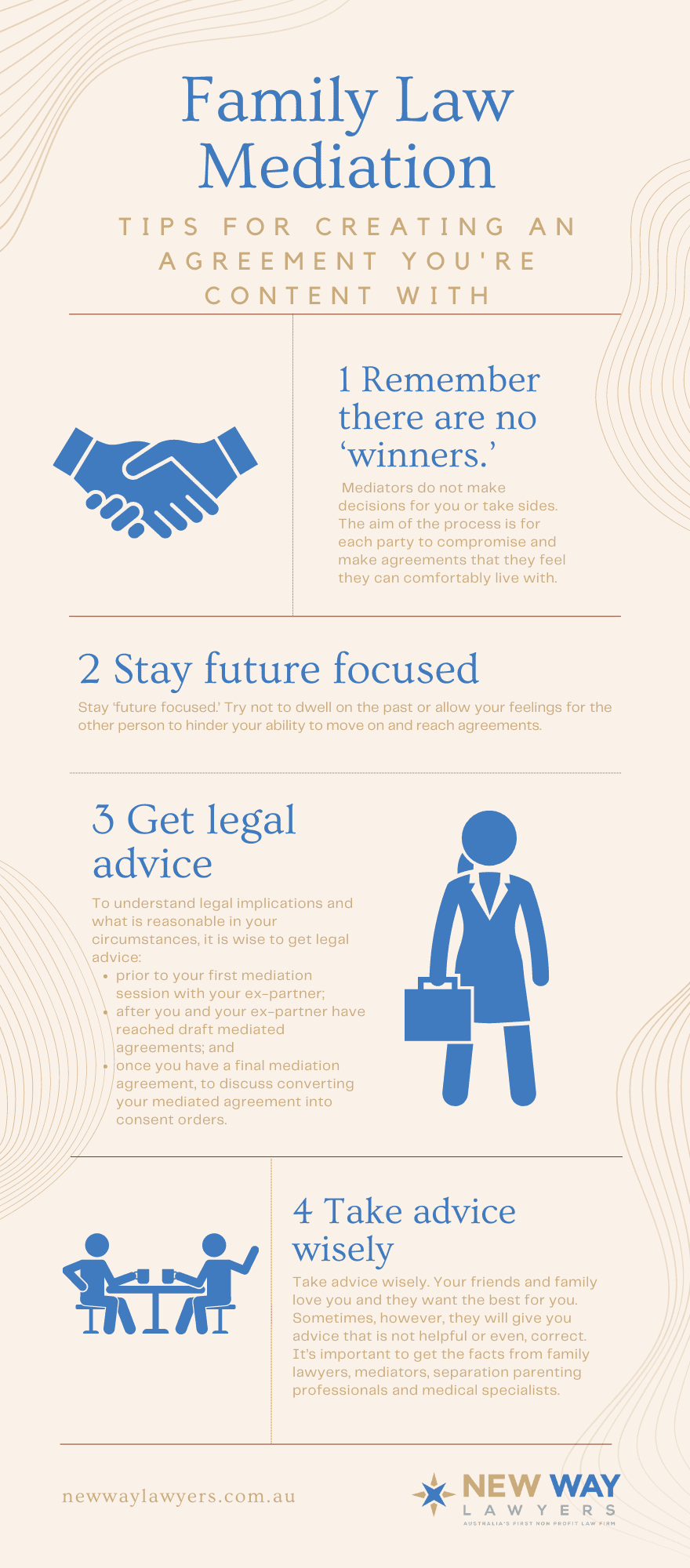-
Am I responsible for my spouse’s debt?
March 3rd, 2025 | by Kim SemmensHECS & HELP debt in Family Law matters
If you are separating from your partner, you might be wondering “am I responsible for my spouse’s debt?”. This blog post discusses how HECS/HELP debts belonging to you or your partner will be considered.
Will my HECS/HELP Debts be included in Family Law Property Settlement?
The Family Court has decided numerous cases involving the issue of HECS/HELP debts:
- Thomm & Painter [2015]: The court excluded the wife’s HECS debt from the settlement because it did not contribute to her earning capacity during the marriage. She only started working in her field after the separation.
- Zimin & Nickson [2014]: The court decided that the wife should be personally responsible for her HECS debt because she completed her studies post separation. Since the qualification would not benefit both parties, the debt stayed with her.
- Berry & Berry [2010]: The court ruled the wife’s HECS debt was a joint liability because:
- Both parties agreed the wife would pursue tertiary education.
- The wife commenced work in her field right after graduation.
- The wife became the primary income earner for the family after graduation.
- Lane & Owen [2010]: The court found the wife’s HECS debt to be a joint liability because in parity the husband’s HECS debt was fully repaid using joint funds during the marriage.
- Partington & Cade [2008]: Both parties had similar HECS debts, but no repayments were made from joint funds. Since neither party was employed in their professional fields, the court ruled that they each remained responsible for their own debt.
2. Key factors from these cases:
These cases demonstrate that HECS/HELP debts are either decided to be a shared or personal debt depending on:
- Did both parties agree that the studies leading to the debt were a shared decision, or was it more of a personal choice by one partner?
- Were the studies completed during the relationship?
- If one partner finished their studies after separation, they might be the only one benefiting from the qualification—and therefore, the debt could stay with them.
- Did both parties benefit from the qualification? For instance, did one partner use the qualification to earn income that supported the family during the relationship?
- Repayments made during the relationship: Did either party contribute toward repaying the debt, either from their income or from joint funds?
- Did both parties have a HECS/HELP debt? If so, if one party’s debt was repaid using joint funds, the court may treat the other person’s debt in an equivalent way.
Questions about your HECS/HELP debt?
If you have an HECS or a HELP debt and want to know how this will be considered and treated in your financial settlement, one of our family lawyers would be more than happy to have a free 20-minute phone consultation with you. Feel free to head to our contact us page and complete the book a free phone consultation form.
-
How is finance and property divided after separating?
November 9th, 2021 | by newwaylawyersWhilst many people believe the fair way to divide property between a separated couple is 50/50, there is an established five (5) step process that is used by the Court and followed by practitioners to guide out of Court financial settlements. In some cases, property may be divided 50/50 however this is not always the case, nor is there an assumption of the same.
The five step process in property settlement after separation
In summary, the five (5) steps are as follows:
1. Is it just and equitable?
Determine whether it is just and equitable to alter the existing property interests of the parties. In most circumstances, particularly in longer relationships or those with young children, this step will generally be satisfied.
2. Calculate the assets and liabilities of the parties.

This includes accounting for assets and liabilities in the sole names of the parties, the joint names of the parties together or the joint names of one of the parties and a third party. The types of assets considered are broad and include but are not limited to real property, shares, business interests, motor vehicles and superannuation. The liabilities considered are also broad and include mortgages, personal loans, credit cards, loans from family members and HELP debts.
3. Assess the contributions made to the property and the relationship by each party.

These contributions include initial contributions, special contributions, financial contributions, non-financial contributions, contributions to the role of homemaker and parent and post separation contributions. At this stage of the assessment, entitlements to property settlement are expressed as percentage share to each party.
4. Assess the future needs of the parties

The future needs include their age and state of health, income and earning capacity, care of children and care of any other dependants. At this stage of the assessment, a determination is made as to whether there should be an adjustment made to the existing percentage distribution as determined at step 2 of the process, based on the future needs of the parties.
5. Is it just and equitable in the circumstances?
Assess whether the outcome, as determined in the previous 4 steps, is just and equitable in all the circumstances.

Seek legal advice from one of our experienced family lawyers about the various types of agreements available and which type of agreement would best suit your particular circumstances. A lawyer can advise about which type of agreement (e.g. a binding financial agreement or consent orders) may be easier and more cost effective.
-
Interim hearing versus final hearing in family law
November 3rd, 2021 | by newwaylawyersSo you have progressed your matter past the first court appearance and you are told that you have to attend an Interim Hearing or a Final Hearing… what does this actually mean? Legal jargon can sometimes feel like a different language and the Courts can feel like a different planet.
To help makes sense of it, the team at New Way Lawyers are going to break it down and share key information about Interim and Final Hearings.

Interim Hearing in the Federal Circuit and Family Court of Australia
An Interim Hearing usually occurs when two parties cannot agree on parenting or property arrangements. The Court makes an order before the final decision is made (an interim order). The Interim order is a temporary order and stays in place until a final decision is made by the Court or agreement reached by the parties.
What do you need to do before a family law Interim hearing?
If your matter has been listed for an Interim Hearing, the Court will most likely have told you what documents you need to file. It is important to comply with timelines for filing documents, otherwise your matter may be delayed (adjourned) or the Judge may grant the orders the other party is seeking. Failing to follow directions given by the Judge can also sometimes result in a ‘costs order’ being made, requiring you to pay money to the other party or their solicitor to cover their costs.
An interim hearing is generally heard ‘on the papers’ which means the Judge will make a decision after reading the documents that have been filed. It is rare for witnesses to be called or cross examined during interim hearings.
Final Orders in the Federal Circuit and Family Court of Australia
A Final Hearing is a formal court hearing where all documents are presented to the Court. In addition, witnesses are called and cross examined. The Court considers all of the evidence before making a final decision. There can be a significant length of time, often 1-3 years, between when court proceedings are commenced and a final hearing being set.
How can you prepare for a final hearing in the Federal Circuit and Family Court of Australia?
Preparing for final hearing is a vey involved and time intense process. Prior to the final hearing the Judge will make trial directions, which set all the steps that the parties need to take prior to the final hearing. This will include what additional documents needs to be filed, what further disclosure needs to be exchanged between the parties and arrangements for the payment of court fees. It is at this point that a barrister will often become involved in preparing the matter for final hearing.
It is important to be prepared for your final hearing by having all of your documents with you. A good tip is to remember to call the Judge, ‘Your Honour’ and present yourself appropriately as the final hearing is formal.
Can you appeal a final order?
After final orders have been made people often wonder if the orders are able to be changed.
If final orders were made by a Judge at final hearing the orders may be able to be appealed. The grounds for appealing final orders include that an error of law or an error of fact was made by a Judge who was presiding over the final hearing. An appeal must be on the basis of one of these valid grounds, it is not possible to appeal simply if the outcome is different to what a party was hoping for or not as favourable as expected.
There may be circumstances following the making of final orders where a significant change in circumstance has arisen, which was not contemplated by the final orders. This change in circumstances may give rise to the ability for an application to be made to the Court to change or vary the final orders. It is important to obtain legal advice if you wish to make an application to vary final orders as it is necessary for a threshold test to be satisfied before the Court will consider the actual application to vary. This threshold test is known as the Rice and Asplund test.
At any point after the making of final orders the parties can agree between themselves to vary or change the orders but both parties must agree, changes are not able to be unilaterally made by just one party.

Call us today on (07) 3548 5868 if you would like a free 20 minute consultation with one of our experienced family lawyers.
-
What is a Direction Hearing / Mention?
November 2nd, 2021 | by newwaylawyersWhen you first start navigating the family law system, it can feel like trying to navigate a map in another language. The forms, process, time frames and the terminology can all feel bamboozling!
Let’s make it simple and explain some of the key steps involved in family law processes.
The Federal Circuit Court and Family Court of Australia overseas family law matters. It has two divisions, division 2 is where all applications are made and division 1 hears all referred complex cases and appeals. Proceedings can only be filed in the Court if all pre-action procedures have been adhered to including engaging in dispute resolution.
Main types of court dates in the Federal Circuit Court and Family Court of Australia
There are four main types of court dates in the FCCFCA and they are;
- First Court Event
- Direction Hearings or Mentions
- Interim Hearings
- Final Hearings
First Court Event in the Federal Circuit Court and Family Court of Australia
The first court event is a procedural hearing conducted by a Judicial Registrar 1-2 months after filing. In this hearing the Judicial Registrar hears from the parties about what steps need to be taken to prepare the matter for the next stages of the Court process and makes orders and directions regarding the same (such as attending dispute resolution, collecting valuations, export reports or disclosure, attendance to an event with a Child Court Expert or attendance to a relevant program). The Judicial Registrar can also make interim financial or parenting orders.
Direction Hearings / Mentions in the Federal Circuit Court and Family Court of Australia
Direction Hearings or Mentions are brief Court appearances where the Judge, Senior Judicial Registrar or a Judicial Registrar makes orders for the next steps that need to be taken to progress and resolve the matter. For example, dispute resolution, financial valuations, disclosure or family therapy may be ordered.
Sometimes there is more than one Direction Hearing and as these are focused on determining the next steps for progressing the matter, there generally won’t be an opportunity for the actual issues in dispute to be decided or determined.

How long after filing an application will a matter be heard in the Federal Circuit Court?
Usually, the first court date will be held 4- 8weeks after the applicant (the person making the application) has filed their application with the Court. An application can be filed either in person at the Court registry or online. If you file in-person, registry staff will write the date, time and location of your first Court date on your application. If an application is filed electronically, a range of available dates will be indicated and the Applicant will choose one of the available dates.
If you are the respondent to an application in the Federal Circuit Court, when do you find out hearing dates?
If you are the respondent (the person who has not made the application but is responding to an application), you will be notified of the date, time and location of the first Court Date when you are served with the application.
Book a free 20 minute consultation with one of our experienced family lawyers and we can help you make sense of these complex processes in light of your matter today on (07) 3548 5868.
-
FAQs: Merger of Family Court of Australia and the Federal Circuit Court of Australia
September 7th, 2021 | by newwaylawyersThe Family Court of Australia and the Federal Circuit Court of Australia have merged. Let’s navigate the family law court merger together with some FAQs:
Q: When did the merger take effect?
A From 1 September 2021
Q: What will the new Court be called?
A The amalgamated new court will be known as Federal Circuit and Family Court of Australia (FCFCA).
Q: What is the reason for this merger?
The main reason for the merger is :-
- to reduce costs and delay in family litigation and to encourage proceedings to be conducted in a more calm and civil manner
- to facilitate the fair resolution of disputes as quickly, inexpensively, and efficiently as possible
Q: How will delays and backlogs be reduced?
A: The FCFCA will place greater emphasis on encouraging parties to settle their matters, where it is safe to do so through dispute resolution. This means there will be less final hearings and Court events, reducing the Court’s workload.
Q: What protection will be afforded to children?

A: The FCFCA will place emphasis on the need to protect the rights of children, promote their welfare and protect them from family violence.
Q: Will there only be one Court after the family law court merger?
A There will be one court, but two divisions of that court. The Family Court of Australia will become the Federal Circuit Court and Family Court of Australia (Division 1). The Federal Circuit Court of Australia will become the Federal Circuit Court and Family Court of Australia (Division 2).
Q: What is the difference between Division 1 and Division 2?
Essentially, applications will be filed in Division 2 and appeals will be heard in Division 1.
Q: Will the current Court forms still apply?

A Yes and no. The FCFCA has streamlined its procedures and new forms are now available on the new FCFCA website. The FCFCA will accept the old forms for a grace period of 90 days from 1 September 2021. After this time, the new forms must be used when applying to the Court.
Q: What is the new FCFCA website address?
A: https://www.fcfcoa.gov.au/
Q: What does this mean for my family law proceedings?
A: You will not be required to do anything if your matter is already in the court system. If your matter was previously in the Family Court of Australia, it will now be listed in Division 1. If your matter was previously in the Federal Circuit Court of Australia, it will now be listed in Division 2.
Q What forms am I required to file if I want to commence a financial or parenting application in Court?
A If you are filing an application in the new Court, you can look at their website to find a list of the forms you will be required to file in support of that application.
The Court’s information about required documents for applications can be found here: https://www.fcfcoa.gov.au/fl/ss-overview
If you require any assistance in your family law matter please call us on 07 3548 5850 or contact us here.
-
What happens when you’re not happy with a family law mediation agreement?
August 31st, 2021 | by newwaylawyersFamily Mediation is a cost effective and emotionally supportive process that assists separating couples reach amicable financial, property and parenting arrangements. Sometimes though, you may wonder if an agreement you reached in mediation was the best outcome and whether you should have agreed to it.
Be aware of the emotions that accompany family law mediation
Mediation can be a tumultuous process. Unresolved feelings from the past may surface and fears about the future may also be present. It is important to be kind to yourself while going through mediation and seek counselling support to help you through.
How to feel content with your family mediation agreements
Given mediation can raise a mix of emotions, there are a few simple things you can do to make sure you feel content with an agreement you reach in mediation;
- Remember there are no ‘winners.’ Mediators do not make decisions for you or take sides. The aim of the process is for each party to compromise and make agreements that they feel they can comfortably live with.
- Stay ‘future focused.’ Try not to dwell on the past or allow your feelings for the other person to hinder your ability to move on and reach agreements.
- Get legal advice. It can be beneficial to get legal advice at the following points (1) prior to your first mediation session with your ex-partner, (2) after you and your ex-partner have reached a draft mediated agreement; and (3) once you have a final mediation agreement, to discuss formalising your mediated agreement so it is legally binding . By seeking legal advice at these different times, you can be sure of the implications of what you are agreeing to and what is reasonable in your particular circumstance.
- Take advice wisely. Your friends and family love you and they want the best for you. Sometimes, however, they will give you advice that is not helpful or even, correct. It’s important to get the facts from family lawyers, mediators, other professionals and medical specialists.

So what happens if you reached an agreement in a family law mediation that you now regret?
It is important to know that mediated agreements are not binding. The best course of action is to talk to a family lawyer as soon as possible about the mediated agreement. Remember, seeking legal advice, does not automatically mean you have to go to Court or start a litigious process. In fact, you may simply be able to schedule another mediation and discuss outcomes you feel more comfortable with, based on your legal advice.
If you would like to talk to one of our experienced family lawyers about an upcoming mediation, or a mediation agreement that you are now unhappy with, please contact us today for a free 20 minute consultation.
-
Family Law and Family Pets
August 20th, 2021 | by newwaylawyersWhether they’re furry, feathery or otherwise, pets provide fun, joy and companionship for the whole family. But what happens to the family pet following separation?
The law around pets and separation
The emotional attachment with our pets means we think of them as family members rather than as mere possessions. Unfortunately though, the law in Australia does not reflect this sentiment.
No custody arrangements for pets
The Family Law Act deals with pets as personal property, in the same way it deals with other personal property like cars and furniture. This means the family pet will be kept by one person and there is no provision for pet custody arrangements, unless an agreement for this can be reached.
Are pets considered an asset in the property pool?
Although pets are considered as personal property normally they are not assigned a monetary value like other assets. However, in certain situations where a pet has a pedigree or where a pet is used for breeding or competition then a financial value may be assigned. This was the situation in a case called Walmsely & Walmsley. The Court held that the pedigree pets were worth $3,000. The wife retained the pets and they were counted as an asset retained by her.
What to consider when making arrangements for a pet

It is always best for separating couples to try to reach an agreement about who will retain the family pet rather than resorting to legal proceedings. In making appropriate arrangements for the pet, consideration should be given to the following:
- which person has the most suitable living arrangements and lifestyle for accommodating the pet;
- the bond between the pet and the children and how this can be best maintained;
- who has the financial means to meet the ongoing costs of maintaining the pet.
What if the separating couple cant agree on who the pet is to live with?
If an agreement can’t be reached about arrangements for the pet and a Judge decides who will retain the pet, a range of factors will be considered including:
- when was the pet purchased;
- who purchased the pet and the circumstances of the purchase, for example was it a gift to one of the parties;
- who is the registered owner of the pet;
- who was the main carer for the pet during the relationship, for example who fed the pet, took them for walks and took them to the vet;
- who was responsible for the financial for the pet;
- who has been caring for the pet since separation;
- who has the best ongoing capacity to care for the pet considering living arrangements, lifestyle and financial means;
- the bond between the parties and the children; and
- how the pet arrangements impact the separation broadly.
The above information is intended to provide general information about how family pets are treated in family law matters and does not represent legal advice. If you would like legal advice about family law matters please call New Way Lawyers on 07 3548 5868 or join our free facebook Lunch with a Lawyer where you can ask your questions for free each lunch time.



















